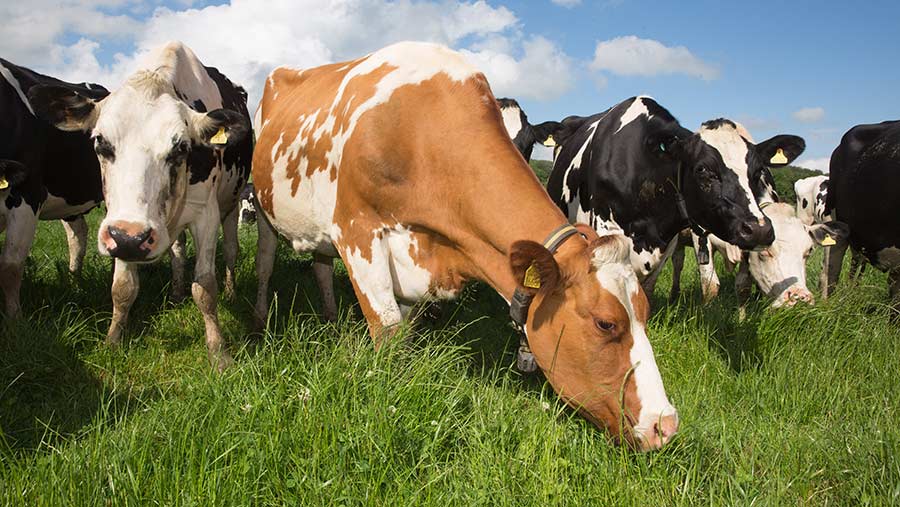Dairy Group wins bursary to devise industry net-zero roadmap
 © Tim Scrivener
© Tim Scrivener The Trehane Trust has awarded a £15,000 bursary to national dairy advisory company The Dairy Group to research and recommend a roadmap to help UK dairy farmers become net zero within the government’s timeframe.
The NFU has set the ambitious goal of reaching net-zero greenhouse gas (GHG) emissions across the whole of agriculture in England and Wales by 2040. This is farming’s contribution to the UK’s ambition of reaching net zero by 2050.
Led by The Dairy Group consultant Richard Lane, the team will co-ordinate the 12-month research project and report findings to the Trehane Trust, as well as the wider dairy industry.
See also: 7 steps to help agri-businesses transition to net zero
Trehane Trust chair Diana Allen said: “We want this project to provide a blueprint for dairy producers, which gives clear, cost-effective and practical pointers that will help them at farm level.
“We feel confident that with the expertise within its team and its UK and international contacts, as well as its national network of dairy clients, that The Dairy Group can deliver on this.”
Ms Allen said she hoped the research would provide well-researched and realistic pointers for producers and their advisers, as the industry looks to mitigate the negative effects of climate change and promote more sustainable and efficient dairy businesses, and in doing so, meet the government’s net-zero targets.
“This must not be a report destined for a shelf, but one that will provide a catalyst in our mission towards net zero,” she added.
The Dairy Group team also includes managing director Ian Powell; dairy consultant Christine Pedersen, specialising in nutritional aspects; and environmental consultant Rebecca Tavernor, who has expertise in nutrient management and accreditations relating to soil and water management.
The team will review research and identify key strategies, and use these to measure and benchmark dairy systems.
The findings will be used to make recommendations aimed at measuring and reducing carbon emissions on-farm – both practically and profitably.
